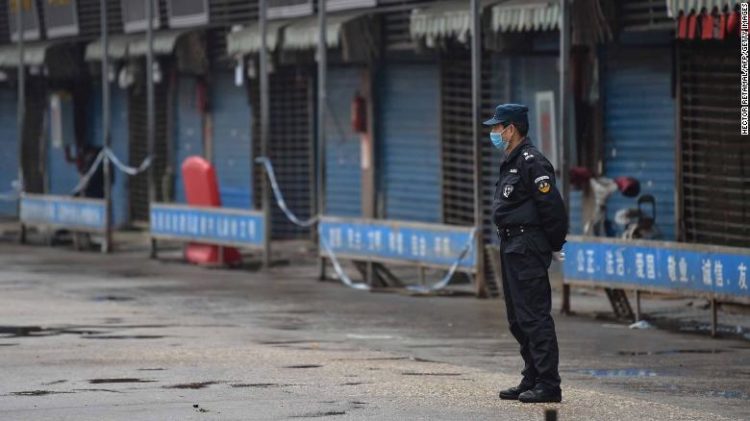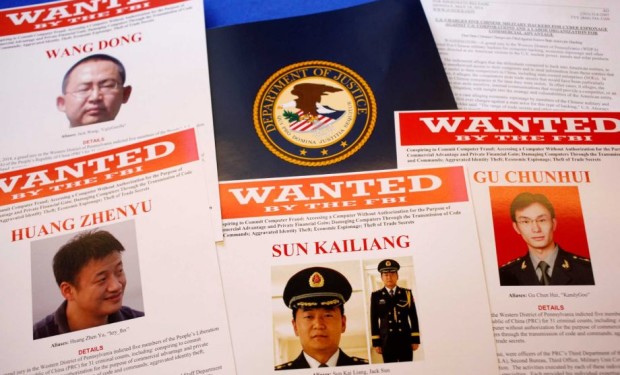How China has waived its Sovereign immunity.
************
We received a telephone call from a friend and member of NAFA LAW, a Venezuelan attorney and former Judge now waiting admission by the Supreme Court of Texas as an international attorney law consultant. In this phone call she share her opinion is that this lawsuit against China cannot proceed because of China’s immunity status. However, China is one of the charter members of the United Nations and is one of five permanent members of its Security Council. In addition there are several legal precedents already established in US including in the International Criminal Court (ICC).
The Alien Tort Statute (“ATS”; also known as the Alien Tort Claims Act) refers to 28 U.S.C. § 1350, granting jurisdiction to federal district courts “of all causes where an alien sues for a tort only in violation of the law of nation or of a treaty of the United States.” Broadly speaking, it serves as a statutory instrument for gaining universal jurisdiction over violations of international law committed by China.
Universal jurisdiction allows states or international organizations to claim criminal jurisdiction over an accused person regardless of where the alleged crime was committed, and regardless of the accused’s nationality, country of residence, or any other relation with the prosecuting entity.
The concept of universal jurisdiction is therefore closely linked to the idea that some international norms are ‘erga omnes’, [legal terminology for “towards all” or “towards everyone”] meaning to the entire world community, as well as the concept of ‘jus congens’ that certain international law obligations are binding on all states. A peremptory norm (also called ‘jus cogens’ or ‘ius cogens’ for “compelling law”) is a fundamental principle of international law that is accepted by the international community of any states as a norm from which no derogation is permitted.
According the NAFA LAW’s article on AICAC-HR Court’s opinion, the Amnesty International issued a proponent of universal jurisdiction, certain crimes pose so serious a threat to the international community as a whole that any and all states have a logical and moral duty to prosecute an individual and government entity responsible; therefore, no place should be a safe haven for those who have committed crimes against humanity, criminal negligence, crimes, extrajudicial executions, was crimes, torture and forced disappearances.
The United Nations Security Council Resolution 1674, adopted by the United Nations Security Council on 28 April 2006, “Reaffirm[ed] the provisions of paragraphs 138 and 139 of the 2005 World Summit Outcome Document regarding the responsibility to protect populations from crimes against humanity, criminal negligence, crimes, extrajudicial executions, was crimes, torture and forced disappearances and ethnic cleansing and commits the Security Council to action to protect civilians in armed conflict.
International tribunals invoking universal jurisdiction. States parties to the Statute of the International Criminal Court (light green means ratification or accession deposited but not yet in force, brown means signed but not yet ratified). Established in The Hague in 2002, the International Criminal Court (ICC) is an international tribunal of general jurisdiction (defined by treaty) to prosecute state-members’ citizens for genocide, crimes against humanity, war crimes, and the crime of aggression, as specified by several international agreements, most prominently the Rome Statute of the International Criminal Court signed in 1998. Universal jurisdiction over the crimes enumerated in the Rome Statute was rejected by the signing parties, however universal jurisdiction is what allows the United Nations Security Council to refer specific situations to the ICC. This has only happened with Darfur (2005) and Libya (2011).
In addition the United Nations has set up geographically specific courts to investigate and prosecute crimes against humanity under a theory of universal jurisdiction, such as the International Criminal Tribunal for Rwanda (1994), and the International Criminal Tribunal for the Former Yugoslavia (1993).
The International Criminal Tribunal for the Former Yugoslavia investigates war crimes that took place in the Balkans in the 1990s. It convicted former Bosnian Serb leader Radovan Karadžić on 10 charges relating to directing murders, purges and other abuses against civilians, including genocide in connection with the 1995 massacre of 8,000 Muslim men and boys in Srebrenica; he was sentenced to 40 years in prison
Universal jurisdiction enforcement around the world. Considerations by the ILC on universal jurisdiction protecting the environment.
The UN’s International Law Commission (ILC) has discussed “The scope and application of the principle of universal jurisdiction”. The ILC refers to deeming serious violations of environmental rules as crimes of such a serious nature that it can be compared to crimes relating to arms trafficking, human trafficking, terrorism and land grabbing, which all my lead to universal jurisdiction being invoked.
The ILC also refers to the United Nations Environmental Programme (UNEP) calling for the application of universal jurisdiction for crimes that result in the destruction of the environment, as well as the ICC Prosecutor making it a “prioritized crime”.
This has also lead to discussions on application of universal jurisdiction, used in conjunction with the aforementioned principles of ‘jus cogens’ and ‘erga omnes’, for protection of the environment.
Since the early 1980s, and particularly since 1989, by means of vigorous monitoring and the strict maintenance of standards, United Nations human rights organizations have encouraged China to move away from its insistence on the principle of noninterference, to take part in resolutions critical of human rights conditions in other nations, and to accept the applicability to itself of human rights norms and UN procedures.
In 2011, the China, Hong Kong Court of Final Appeal ruled that absolute sovereign immunity applies in Hong Kong, as the Court found that Hong Kong, as a Special Administrative Region of China, could not have policies on state immunity that was inconsistent with China. The ruling was an outcome of the Democratic Republic of the Congo v FG Hemisphere Associates case in 2011.
This means that sovereign states are absolutely immune to the jurisdiction in China- Hong Kong courts, including in commercial claims, unless the state waives its immunity. In order to waive immunity, there must be express, unequivocal submission to the jurisdiction of the Hong Kong courts “in the face of the court”. Claimants should establish that the state party has waived their entitlement to immunity at the relevant stage, before proceedings can occur in court.
Therefore, If we plaintiff can demonstrate that the China government’s action was done in bad faith, [“serious negligence and concealment of the Chinese government fired the coronavirus epidemic in the United States”] we plaintiff can file lawsuit and receive damages despite sovereign immunity. Typically if we can demonstrate that the government of China intentionally acted wrongly with the sole purpose of conceal at the beginning this epidemic causing damages, then we can recover for injury and economic losses.
China has waived its Sovereign immunity. HHP
ATS serves as a statutory instrument for gaining universal jurisdiction over violations of international law commited by China. Case: Humphrey Humberto Pachecker v. Fidel Castro, Communist Party of Cuba, Et Al. See more details and documents entering this link: http://nafalaw.com/blog/2018/10/14/2505/

A security guard stands outside the Huanan Seafood Wholesale Market where the coronavirus was detected in Wuhan on January 24, 2020 – The death toll in China’s viral outbreak has risen to 25, with the number of confirmed cases also leaping to 830, the national health commission said. (Photo by Hector RETAMAL / AFP) (Photo by HECTOR RETAMAL/AFP via Getty Images)

